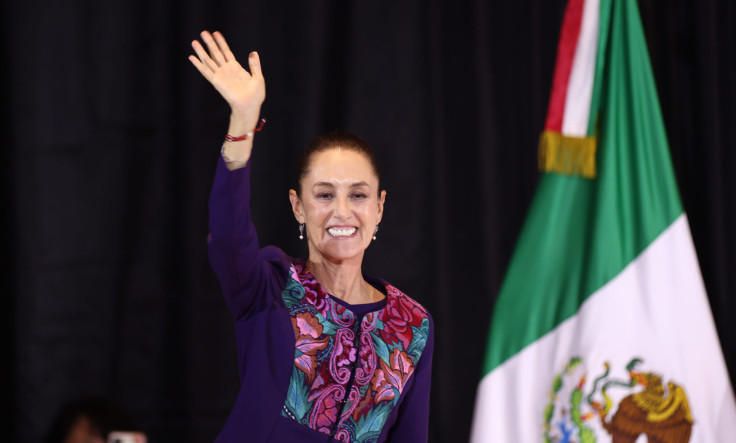
Seeking to calm investor jitters over controversial judicial reforms, Mexico's new president said Tuesday that four foreign companies would invest around $20 billion in the Latin American nation next year.
The announcement came on the same day that the International Monetary Fund (IMF) predicted slowing growth for Latin America's second-largest economy and issued a warning about uncertainty created by the reforms.
President Claudia Sheinbaum trumpeted planned foreign investment in energy, tourism and e-commerce after meeting US business leaders in Mexico City, although it was unclear how much of it was new.
"At least four major investments of around $20 billion in our country were announced for 2025," the leftist leader told a press conference.
The investments were pledged by liquefied natural gas firm Mexico Pacific, e-commerce giant Amazon, cruise line operator Royal Caribbean and oil and gas firm Woodside Energy, Economy Minister Marcelo Ebrard said.
While the confirmed total was more than $20 billion, actual investments could exceed $30 billion by 2025, he said.
Sheinbaum, who took office as the country's first woman president on October 1, met Tuesday with 240 business chiefs, some of them from the United States, Mexico's main trading partner, her government said.
The United States and Canada have expressed concern about the impact on trade relations of the judicial reforms, which will make Mexico the world's first country to elect all judges by popular vote.
Sheinbaum sought to dispel such concerns, saying that the constitutional amendment "does not represent a problem for investment in Mexico."
According to the IMF, however, the reforms "create important uncertainties" about contract enforcement and the rule of law.
"It is critical that this reform be implemented in a clear and predictable way that ensures the independence and professionalism of the judiciary and strengthens the rule of law," its staff said Tuesday in a statement after visiting Mexico.
Economic growth was expected to slow to 1.5 percent this year, compared with a prediction of 2.2 percent given in July, it said, adding that the new forecast did not reflect the reform-related uncertainties.









